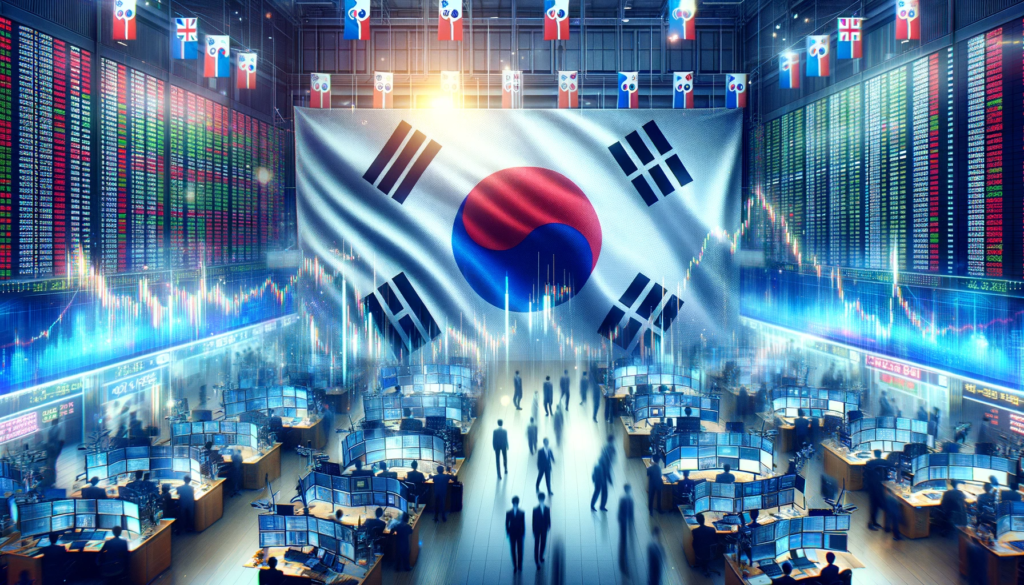In a bold step towards market fairness, South Korea has announced a sweeping ban on short selling, effective until June 2024. This move, aimed at curbing the practice by institutional investors, has immediately sent the Kospi stock index soaring by as much as 4%.
Kospi Index Rallies Following Ban
The news of the ban sparked a significant market reaction, with the Kospi index experiencing a substantial uplift. Notably, LG Energy Solution saw a surge of over 20%, and Posco Future M, a key player in battery materials, witnessed a 28% jump. The tech-centric Kosdaq index wasn’t left behind, enjoying an uptick of 6%.
A Crackdown on Unfair Practices
Kim Joo-hyun, chair of the Financial Services Commission (FSC), emphasized the persistent concerns over fair price formation, highlighting the troubling issue of illegal naked short selling. The FSC’s commitment to a zero-tolerance stance on these practices signals a new era of strict enforcement and criminal prosecution for offenders.
Reversal of Previous Policies
The new restrictions mark a reversal from the 2021 decision to lift short selling bans on select stocks. The original restrictions were a pandemic response to stabilize the market. However, facing a sluggish stock market and the specter of the upcoming parliamentary elections, regulators have responded to public demand for more stringent controls.
Political Implications of the Ban
Short selling has become a contentious political issue, especially among South Korea’s robust retail investor community. The FSC’s latest decision reflects a strategic move to balance the scales between institutional and individual investors, particularly as the nation heads towards national elections.
Surprising Regulatory Decisions
The FSC’s surprise move contrasts with expectations of deregulation, complicating South Korea’s push for developed market status. While domestic investors may applaud the ban, the potential impact on South Korea’s market evolution and long-term macroeconomic recovery remains a topic of debate.
Impact on South Korea’s Tech Sector
The tech-focused Kosdaq index, particularly sensitive to market fluctuations, responded with a 12% surge. This uptick breaks a downward trend that has plagued the market since August 2023, signaling investor confidence in the sector’s resilience and future growth potential.
Reintroduction of the Short Selling Ban
The FSC has taken a firm stance against global financial instability, citing inadequate measures against short selling as a catalyst for the ban’s reintroduction. The FSC’s promise to bolster regulations and enforce stricter policies against naked short selling aims to restore integrity to the market.
Balancing the Investment Playing Field
The FSC’s strategy extends beyond regulation, seeking to create a more equitable environment for both institutional and retail investors. This approach echoes the pandemic-era ban, reflecting a consistent regulatory philosophy aimed at maintaining market stability and fairness.
Looking Towards a More Stable Future
The FSC is not only putting immediate safeguards in place but is also looking to the future. By the time the ban is lifted, the commission aims to have stronger preventative measures against unfair trading practices, ensuring a more balanced and stable market for all participants.
A Strategic Step for Market Equity
South Korea’s extension of the short selling ban is a strategic maneuver to correct market disparities and foster an environment of fair trading practices. While it may bring short-term market gains, the FSC’s actions are designed with a long-term vision of market stability and fairness, ensuring a level playing field for all investors. The ripple effects of this decision will be closely watched as South Korea continues to navigate the challenges of global finance and domestic market evolution.












